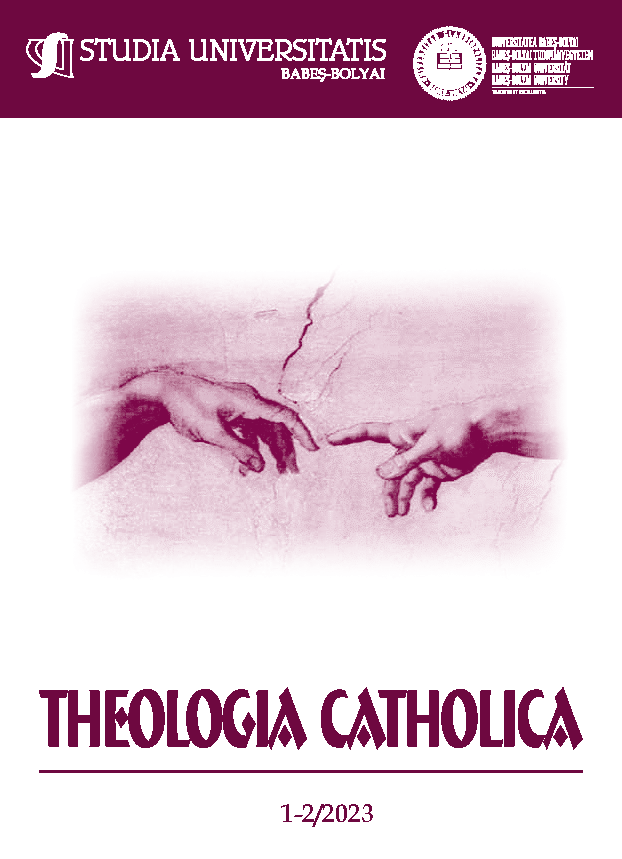Alcune note sul sacramento della penitenza celebrato in rito armeno
DOI:
https://doi.org/10.24193/theol.cath.2023.06Keywords:
sin, penance, confession, Sacrament, tradition, forgivenes, absolution.Abstract
Some notes regarding the Sacrament of Penance in the Armenian rite. The authors, the first of whom is “vardapet”, or “master priest” of the Armenian Mekhitarist Congregation, the second an Armenian scholar and graduate of the Armenian Academy of San Lazzaro in Venice, intended to present succinctly some characteristics, especially ritual, concerning the Sacrament of Penance or Reconciliation as it is conferred in the Armenian Church.
Passages of Scripture are cited in which the Saviour gives the Church the potestas to grant forgiveness to the faithful.
Reference is made to various situations present in Sacred Scripture and to the magnanimity of the Saviour who grants forgiveness, for example the forgiveness of the Good Thief who recognizes his own sins and turns, aware of his life as a sinner, to the Saviour, who suffered for us on the Cross, in order to be “remembered” in the Kingdom of Heaven. And Jesus assures him that he would be with Him in paradise.
The authors emphasize the importance of profound change, called “change of mentality” or “metanoia”.
After some historical remarks, the authors make references to the Liturgy and the Scripture in order to help the reader to meditate on the great gift of forgiveness, one of the greatest given by the Saviour before ascending to heaven and leaving us not alone, but in the shadow of his merciful love.
There is also no lack, even if offered in a succinct way, of references to other traditions in which the faithful, recognizing their sins, turn to God for his forgiveness. Among the characters mentioned in these pages, Manasses cannot be missing, he who changed his mentality to get closer to God, while recognizing the serious sins he has committed.
In the appendix there are some passages, including that of the ARJAKUMN (ABSOLUTION), which help us to understand the state of sin and the longing to escape from a road that leads to death, also because we have allowed ourselves to be enchanted by the one who, in many Eastern traditions, is not even mentioned, that is, Satan.
Among the various prayers, the recognition of involuntary sins is also striking, a recognition that the faithful make before the priest pronounces the words of absolution. Among the authors mentioned, Saint Nersès the Gracious, Patriarch of the Armenians (1102-1173), is particularly remembered.
Downloads
Published
How to Cite
Issue
Section
License
Copyright (c) 2023 Studia Universitatis Babeş-Bolyai Theologia Catholica

This work is licensed under a Creative Commons Attribution-NonCommercial-NoDerivatives 4.0 International License.





 ©Studia UBB Theologia Catholica. Published by Babeș-Bolyai University.
©Studia UBB Theologia Catholica. Published by Babeș-Bolyai University.